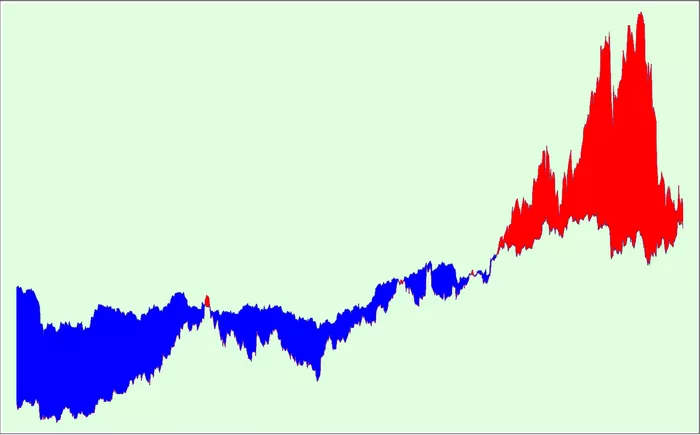Investing in the stock market has never been more accessible, thanks to the proliferation of mobile trading apps. These apps allow investors to manage their portfolios, execute trades, and monitor market trends from the convenience of their smartphones. With a plethora of options available, choosing the best stock trading app can be challenging. This article explores some of the top stock trading apps, considering their features, usability, and overall performance to help you make an informed decision.
Key Features of Stock Trading Apps
User Interface and Usability
A user-friendly interface is crucial for a seamless trading experience. The best stock trading apps offer intuitive navigation, clear charts, and easy access to essential features. Usability is particularly important for beginners, who need a platform that simplifies the complexities of stock trading.
Commission and Fees
Cost is a significant factor when choosing a stock trading app. Many apps now offer commission-free trading, making it more affordable for investors to buy and sell stocks. However, it’s essential to consider other fees, such as account maintenance fees, transfer fees, and fees for additional services.
Research and Analysis Tools
Access to comprehensive research and analysis tools can enhance your trading decisions. The best stock trading apps provide real-time data, news updates, technical analysis tools, and expert insights. These features help investors make informed decisions and stay updated on market trends.
Trading Options
Different investors have different needs. Some may focus solely on stocks, while others may be interested in options, ETFs, mutual funds, or even cryptocurrencies. The best stock trading apps offer a wide range of trading options to cater to diverse investment strategies.
Security
Security is paramount when it comes to trading apps. Look for apps with robust security measures, including encryption, two-factor authentication, and secure login protocols. Ensuring the safety of your personal and financial information is critical.
See Also: What Are The Best Stocks For Day Trading?
Top Stock Trading Apps
Robinhood
Overview
Robinhood has gained popularity for its commission-free trading and user-friendly interface. It is particularly popular among millennial and beginner investors.
Key Features
- Commission-Free Trading: Robinhood offers commission-free trades for stocks, ETFs, options, and cryptocurrencies.
- User-Friendly Interface: The app’s simple and intuitive design makes it easy for beginners to navigate and execute trades.
- Fractional Shares: Robinhood allows users to purchase fractional shares, enabling investors to buy a portion of a high-priced stock.
- Cash Management: The app offers a cash management account with a competitive interest rate and debit card.
Pros and Cons
- Pros: Commission-free trading, easy-to-use interface, fractional shares, cash management features.
- Cons: Limited research and analysis tools, no mutual fund trading, customer service concerns.
E*TRADE
Overview
E*TRADE is a well-established brokerage with a comprehensive trading platform. It offers a wide range of investment options and robust research tools.
Key Features
- Comprehensive Research: E*TRADE provides extensive research tools, including real-time data, market news, and analysis reports.
- Diverse Investment Options: Investors can trade stocks, options, ETFs, mutual funds, bonds, and futures.
- Two Trading Platforms: The ETRADE mobile app and the Power ETRADE app cater to different levels of trading experience.
- Educational Resources: The app offers educational resources and webinars to help investors improve their trading skills.
Pros and Cons
- Pros: Extensive research tools, diverse investment options, two trading platforms, educational resources.
- Cons: Higher fees for some trades compared to commission-free apps, complex for beginners.
TD Ameritrade
Overview
TD Ameritrade is known for its robust trading platform and comprehensive educational resources. It caters to both beginner and advanced traders.
Key Features
- Thinkorswim Platform: TD Ameritrade’s Thinkorswim platform offers advanced trading tools, customizable charts, and technical analysis.
- Commission-Free Trading: The app offers commission-free trades for stocks, ETFs, and options.
- Educational Content: Extensive educational content, including articles, videos, and live workshops, helps investors enhance their trading knowledge.
- Wide Range of Investments: TD Ameritrade supports trading in stocks, options, ETFs, mutual funds, futures, and forex.
Pros and Cons
- Pros: Advanced trading tools, comprehensive educational resources, wide range of investment options, Thinkorswim platform.
- Cons: Complex interface for beginners, higher fees for certain trades.
Fidelity Investments
Overview
Fidelity Investments offers a solid trading platform with extensive research tools and low-cost trading options. It is suitable for both beginner and experienced investors.
Key Features
- Research and Analysis: Fidelity provides comprehensive research tools, including stock screeners, market analysis, and third-party research reports.
- Low-Cost Trading: Commission-free trading for stocks, ETFs, and options, with no account minimums.
- Investment Options: Investors can trade stocks, options, ETFs, mutual funds, and bonds.
- Customer Service: Fidelity is known for its excellent customer service and support.
Pros and Cons
- Pros: Comprehensive research tools, low-cost trading, wide range of investment options, excellent customer service.
- Cons: Interface may be less intuitive for beginners, no cryptocurrency trading.
Charles Schwab
Overview
Charles Schwab offers a robust trading platform with a wide range of investment options and excellent customer service. It is suitable for all levels of investors.
Key Features
- Commission-Free Trading: Commission-free trades for stocks, ETFs, and options.
- Research and Tools: Extensive research tools, including stock screeners, market analysis, and third-party research reports.
- Investment Options: Investors can trade stocks, options, ETFs, mutual funds, bonds, futures, and forex.
- Customer Service: Charles Schwab is known for its exceptional customer service and support.
Pros and Cons
- Pros: Commission-free trading, extensive research tools, wide range of investment options, excellent customer service.
- Cons: Interface may be less intuitive for beginners, higher fees for certain trades.
Webull
Overview
Webull is a commission-free trading app that offers advanced tools and features for more experienced traders. It has gained popularity for its comprehensive charting and analysis tools.
Key Features
- Commission-Free Trading: Webull offers commission-free trades for stocks, ETFs, and options.
- Advanced Tools: The app provides advanced charting tools, technical indicators, and real-time market data.
- Paper Trading: Webull offers a paper trading feature, allowing users to practice trading without risking real money.
- Extended Hours Trading: Webull supports pre-market and after-hours trading.
Pros and Cons
- Pros: Commission-free trading, advanced charting tools, paper trading, extended hours trading.
- Cons: Limited educational resources, no mutual fund trading, customer service concerns.
Factors to Consider When Choosing a Stock Trading App
Investment Goals
Your investment goals should guide your choice of a trading app. If you are a beginner looking for a simple and user-friendly platform, apps like Robinhood or Fidelity might be suitable. For more advanced traders, apps with robust tools and features like Webull or Thinkorswim by TD Ameritrade might be better options.
Trading Frequency
Consider how often you plan to trade. Frequent traders might benefit from apps with low or no commission fees and advanced trading tools. Less frequent traders might prioritize apps with comprehensive research and educational resources.
Research and Analysis Needs
Evaluate your need for research and analysis tools. Some apps offer extensive research, market analysis, and third-party reports, which can be valuable for making informed decisions. Others might have more basic tools, suitable for simpler trading strategies.
Costs and Fees
While many apps offer commission-free trading, it’s essential to consider other costs and fees, such as account maintenance fees, transfer fees, and fees for additional services. Compare the fee structures of different apps to find one that fits your budget.
Security
Ensure that the trading app you choose has robust security measures to protect your personal and financial information. Look for apps with encryption, two-factor authentication, and secure login protocols.
Customer Service
Good customer service can be crucial, especially if you encounter issues with your account or trades. Consider the customer service reputation of the app and whether they offer support through various channels like phone, email, and chat.
Conclusion
Choosing the best stock trading app depends on your individual needs and preferences. Robinhood, E*TRADE, TD Ameritrade, Fidelity Investments, Charles Schwab, and Webull are all excellent options, each with its own set of features and benefits.
When selecting a trading app, consider factors such as user interface, commission and fees, research and analysis tools, trading options, security, and customer service. By carefully evaluating these aspects, you can find a trading app that suits your investment goals and enhances your trading experience.
Investing in the stock market can be a rewarding endeavor, and the right trading app can make the process more accessible and efficient. Whether you are a beginner or an experienced trader, there is a trading app out there that can meet your needs and help you achieve your financial goals.
Related topics:
































